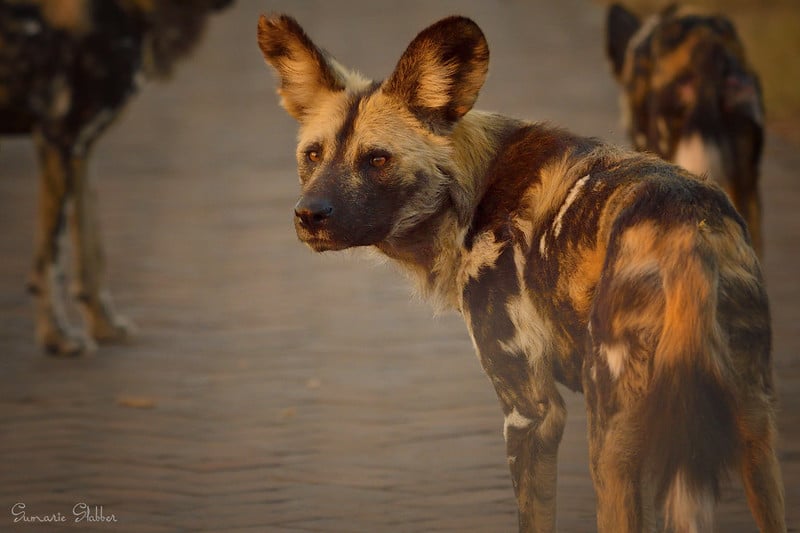High temperatures have contributed to an increase in human activity-related African wild dog deaths, with humans responsible for almost half of deaths at study sites, according to research led by international conservation charity ZSL (Zoological Society of London), with Predator Conservation Trust and African Wildlife Conservation Fund.
—
What is Happening?
- The study, published in the journal Ecology and Evolution, found that higher ambient temperatures are associated with a higher risk of African wild dogs being killed by people or diseases spread by domestic dogs. Overall, the study- which took place at sites in Kenya, Botswana and Zimbabwe- found that intentional and unintentional killing by humans, as well as disease spread by domestic dogs, accounted for 44% of all African wild dog deaths at the study sites between 2002 and 2017.
- African wild dogs are currently classed as Endangered on the IUCN Red List of threatened species with the number of adults estimated at only 1 400 adults, and decreasing.
- Higher temperatures may exacerbate the risk of mortality from other causes- a phenomenon that has also been observed in studies on humans. ZSL’s researchers have previously shown that African wild dogs shift the timing of their hunts and choice of habitat during hot weather, while their new study indicates the change of behaviour could now be bringing them into greater conflict with livestock farmers and diseases spread by domestic dogs.
- The study points to larger pack size as improving African wild dogs’ chances of survival, suggesting that larger packs are better at defending themselves, caring for individuals and avoiding predators, competitors and people. However, pack size is at risk of diminishing in the face of intentional and unintentional killings by humans and the spread of disease by domestic dogs.
You might also like: The Case for ‘Freeing’ Happy the Elephant to be Heard by the New York Court of Appeals
Lead author Dr Daniella Rabaiotti, of ZSL’s Institute of Zoology, says, “African wild dogs are facing twin impacts of climate change. Our latest study shows that higher temperatures exacerbate the risk of death due to human-wildlife conflict, while- as ZSL reported in 2017- rising temperatures also reduces their ability to successfully reproduce and survive to adulthood. With higher temperatures limiting the wild dogs’ opportunity to hunt, this is also likely to leave individuals malnourished and immune systems compromised – making them more susceptible to the diseases carried by domestic dogs. These pressures on pack size, itself an important indicator of survival chances, could see the African wild dog spiral towards extinction.”
She continues, “It’s clear from our study that the human impacts on African wild dog mortality are pervasive. This is particularly concerning because, as a highly social species with a strong hierarchy, individuals killed by humans can have a disproportionate impact at a population level. If a dominant male or female is lost a pack can splinter, reducing their ability to hunt, breed and fight off competing predators. The good news is that our findings indicate the impact of climate change on African wild dog mortality could be mitigated both locally and globally: resolving human-wildlife conflict and reducing disease transmission from domestic dogs could help to make African wild dog populations more robust in the face of climate change, while by lowering our individual carbon footprints we can all contribute to the survival of these incredible animals.”
About ZSL (Zoological Society of London)
Founded in 1826, ZSL (Zoological Society of London) is an international scientific, conservation and educational charity whose mission is to promote and achieve the worldwide conservation of animals and their habitats. Our mission is realised through our ground-breaking science, our active conservation projects in more than 50 countries and our two Zoos, ZSL London Zoo and ZSL Whipsnade Zoo. For more information visit www.zsl.org. Earth.Org is partnering with Zoological Society of London to bring news of their conservation efforts to a wider global audience.
Featured image by: Flickr

















